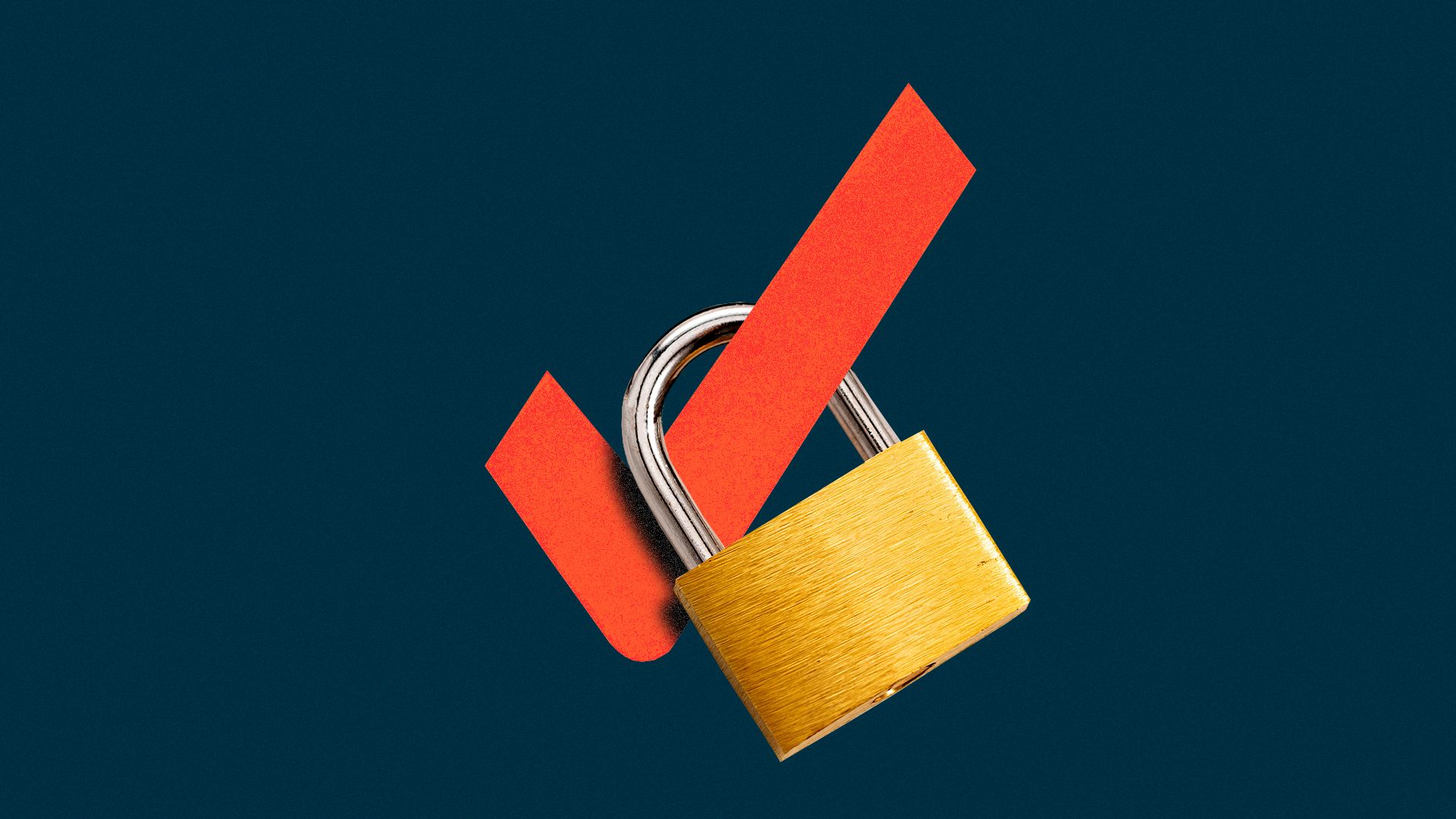Voters have made up their minds
Add Axios as your preferred source to
see more of our stories on Google.

Illustration: Annelise Capossela/Axios
The 2020 presidential election features a pared-back pool of undecided voters after four years of a highly controversial and media-saturated presidency.
Why it matters: Entrenched views mean there's less reason for campaigns to try to change voters' minds than to convince those already with them to vote — and help educate them about mail-in and early-vote procedures to make sure their votes count.
A wealth of evidence suggests more Americans have made up their minds by this point compared with years past:
- The conventions had practically no impact on the shape of the race: Biden's national polling lead (+7.5 per FiveThirtyEight's average of polls) is just a half-point smaller than it was a month ago.
- Just 3% of likely voters said they didn't know who they'd vote for in a recent national Quinnipiac poll. The same percent of registered voters said they were undecided in a Monmouth poll this week.
- An August poll by the Pew Research Center found that among those who preferred Biden or Trump, just 5% said there was a chance they'd change their minds.
- Compare that to Pew's poll in August 2016, which found that 8% of Hillary Clinton's supporters said there was a chance they might vote for Trump. Similarly, for those who preferred Trump, 8% said they might vote for Clinton.
- Even in the swingiest of swing states, most people's minds appear made up. Just 5% of Floridians say they might change their minds, according to a recent Quinnipiac poll.
The big picture: Trump's approval rating has held remarkably steady in the low 40s despite his impeachment, a pandemic, a trade war, rule-of-law crises, an endless barrage of damaging reporting and national reckonings on sexual assault, guns, immigration and race.
Between the lines: "There were Republicans who were undecided in 2016 but ultimately rallied to Trump. This year, they're likely on board. And, if not, they jumped ship a while back," John Sides, a political science professor at Vanderbilt who studies political behavior, tells Axios.
- "Similarly, Biden is a more popular figure than Clinton was. So there are likely fewer Democrats who are undecided this year compared to 2016."
Yes, but: Despite the entrenched opinion, there are reasons the election outcome is still uncertain.
- While the polls tell a consistent story, we don't know how accurate they will be this year.
- For the ballots to count, voters in each state need to understand mail-in procedures and deadlines if they don't want to vote in person — and higher rejection rates for improperly cast mail-in ballots mean more potential for uncounted votes.
- Additionally, the risk of an overwhelmed and under-supported U.S. Postal Service could impact results.
- U.S. election systems have never dealt with anything close to the level of expected mail-in votes.
The bottom line: These uncertainties mean the truly undecided voters who remain — as few as they may be — could still tip election results.
